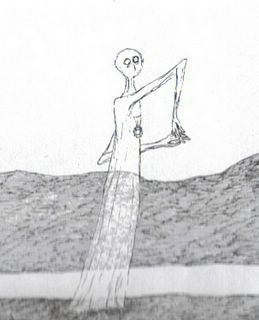"Media Now: The Simpson Trial"
This segment is from the book VIRTUOUS REALITY by Jon Katz. Katz is a media critic, novelist, and is the editor of WIRED magazine (or was when the book was published, anyway.) His book is not focused exclusively on television, but I've included this reading because the Simpson trial was one of the biggest media events of the last decade and most of us probably watched the events on TV.
Katz, Jon. "Media Now: The Simpson Trial." VIRTUOUS REALITY. New York: Random House, 1997. Pg 129-131.
"Information wants to be free, the Internet slogan goes. By the same token, media want to tell the truth. That neither force gets what it wants much of the time is one of the great ironic dramas of the information revolution.
But if you watch those screens and read enough, carefully enough, for long enough, the truth unfailingly struggles to break through, often in indirect and surprising ways.
In the O. J. Simpson trial, the truth revealed was this: The country and some of its most important institutions have become mired in a mean-spirited stand-off between factions whose primary characteristic is self-righteous obstinancy. Our open spaces---courts, workplaces, Congress, academe---are no longer meeting places but are battlegrounds on which the most pressing struggles never get resolved. We are no longer one nation, if we ever were; we are a landmass peopled by many bitterly divided tribes. Wherever we come together to thrash out common values, laws and understandings, we can’t.
And the institution most responsible for spotting this big story and helping us to come to terms with it doesn’t do its job. The power of modern media is a great hoax, exposed by Orenthal James Simpson and the spectacle he provoked in Los Angeles in 1995.
If this was one of our most interesting stories ever, it was also one of our most brutal. The trial brought to mainstream America overpowering evidence of this new reality: The notion of one nation united by common views of attainable equality, justice and individual freedom is a myth. Day after day, some of our most cherished social beliefs were chipped away, witness by witness. The police didn’t stand for justice, which is clearly not the least bit blind; the lawyers didn’t represent the law; the jury couldn’t promise unbiased judgement; the judge didn’t ensure order and journalism didn’t supply the truth.
Our society had no mechanism to try O. J. Simpson rationally in those circumstances at that time. It can’t deal with paralyzing social tension; it seeks to curb technology it can’t control; it virtually guarantees that informed, fair-minded people be barred from the jury system.
No institution in this spectacle seemed more bankrupt than the media themselves. Technology allowed them to bring us the words and pictures more quickly and clearly than ever, but they lost the will to explain what those images meant. The media don’t help us to talk to or comprehend one another; they simply encourage us to state our differences ever more stridently. The people working for them are not prepared or permitted to acknowledge the way the enormous social, ethnic and political changes transforming our culture permeated the story unfolding in front of them.
On the scary road to Simpsonville, some of our most central institutions seemed nearly overwhelmed."
Should the media have to "explain what those images meant?" Where do people go for explanations of media events, the Simpson trial, the 9/11 terrorist attacks, the continuing war in Iraq, if the do NOT get them from the broadcasts themselves? Would a network that attempted to explain what it's stories meant be overstepping its bounds?


0 Comments:
Post a Comment
<< Home